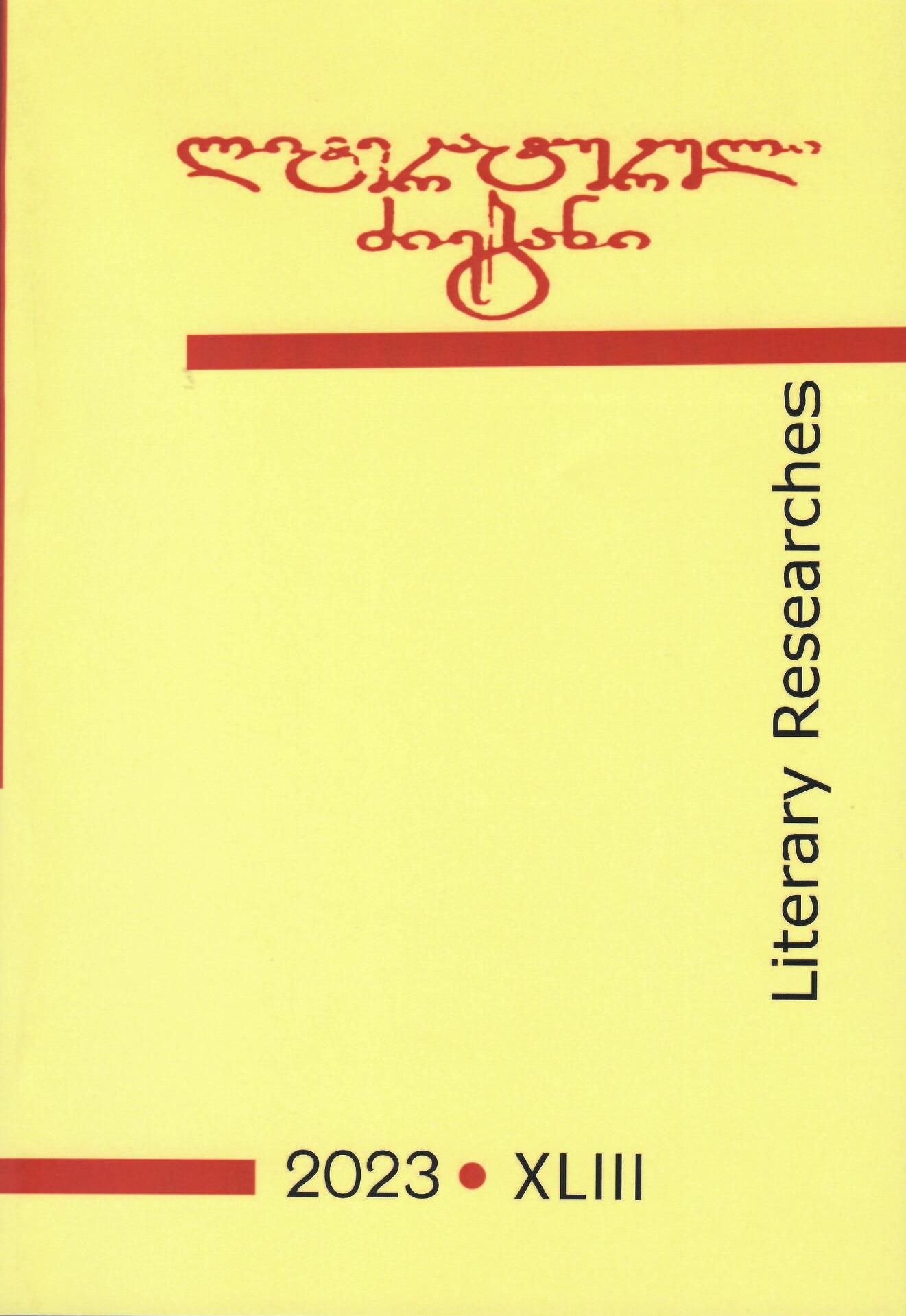Published 2023-12-14
How to Cite
Abstract
The study of Vazha-Pshavela’s, this genius thinker’s literary legacy was always an object of researchers’ various interests, although his works still hide a lot of secrets. The basis of this statement can be found within the philosophical interests that show themselves in Vazha’s fictional world. Vazha-Pshavela’s artistic vision reached the deepest layers of inner human nature, human interaction and defined their value in light of social life. A notable example, from this point of view, is Vazha-Pshavela’s poem Aluda Ketelauri.
The idea regarding the transfiguration of Aluda Ketelauri’s character has been stated within the scientific literature numerous times, as if the influence of meeting Mutsal caused a fateful change in his morality and led to him not cutting off Mutsal’s right hand. We believe that this was possible due to Aluda’s inner openness to see and value his enemy’s honor. Nothing in the poem hints at the fact that this trait developed within Aluda’s mind due to his fight with Mutsal – it’s just that meeting Mutsal created a favorable environment for this trait to be shown. The motif of Aluda not cutting off Mutsal’s right arm is employed by Vazha-Pshavela to define how special Aluda is and to continue the plot. In other ways, this incident has nothing to do with the conflict that shows the moral of this poem.
Within Aluda’s character Vazha-Pshavela showed us a sample of such a noble heart that is created within social understanding by the cultural environment built on the basis of Christian faith. Aluda’s world view is based on a humane attitude towards mankind, for him this is what being human is about, and he admits the importance of a human.
Thouugh these characters Vazha-Pshavela shows us that the philosophical understanding of a human excludes any wishes of conflict and bloodshed. These cannot ever become a definitive trait of human relations since in such a case people will move away from their true nature. Within the view of Aluda Ketelauri, the need of vengeance is transformed into such a wild act as human
cannibalism could be. A human is precious only through their humanity, and there are no other criteria that need to be met to define this value. The humanism that guides Aluda’s actions is based on such understanding.
From this point of view, the episode of Khatoba is especially important, when Aluda Ketelauri decides to sacrifice a bull to honor his enemy’s soul. The scientific literature agrees that this is the fact that lays the foundation for the separation of Aluda and his tribe. He “disobeyed the norms of religious justice” that would be “a reason enough to judge and exile a person in every society” (Grigol Kiknadze). But the question lies in the following, why is this man, who is blessed by god and respected by his neighbors, disobeying the religious rules and opposing that which is held sacred for all mountain men? It is not likely that Aluda Ketelauri’s actions have a simple explanation. We believe that the idea that in this case we are dealing with a difference in the understanding of faith between Aluda and the representatives of the tribe has been proven. The circumstances that would lead to this difference coming to light had simply not occurred before. Aluda brings the sacrificial bull without hesitation, he does not intend to offend his tribe’s faith, rather he honestly acts according to his own understanding of faith – that the true faith can only be based on universal love, and it is impossible for it to destroy hopes of any person’s survival. For this reason, only the other tribesmen see this as disobeying the norms of their religion, because their understanding is still primitive and closer to the attitudes of paganism. While Aluda’s personality “contains niches that characterize a higher level of social development” (Grigol Kiknadze). Therefore, the Christian world-view is closer to him, which represents the highest level of humanity’s development over the entire history of mankind. Within him the narrow-minded views of the Old Testament have been overcome, while a human, one who contains the immortal spirit
of the God, has been placed as the highest value. Aluda naturally understands the humanism on which Christian dogma is based on because it is a part of his ethical-moral world. For the other members of the tribe, given their current level of development, it is impossible to understand faith in this way.
On the basis of what was stated above, we believe that within the character of Aluda Ketelauri, Vazha-Pshavela demonstrated an aspect of the relationship of a person and a society where the difference in the understanding of faith acts as the basis for conflict. Vazha-Pshavela reached into the deepest layers of human nature and shed light on an issue that is relevant for all levels of mankind’s development.

